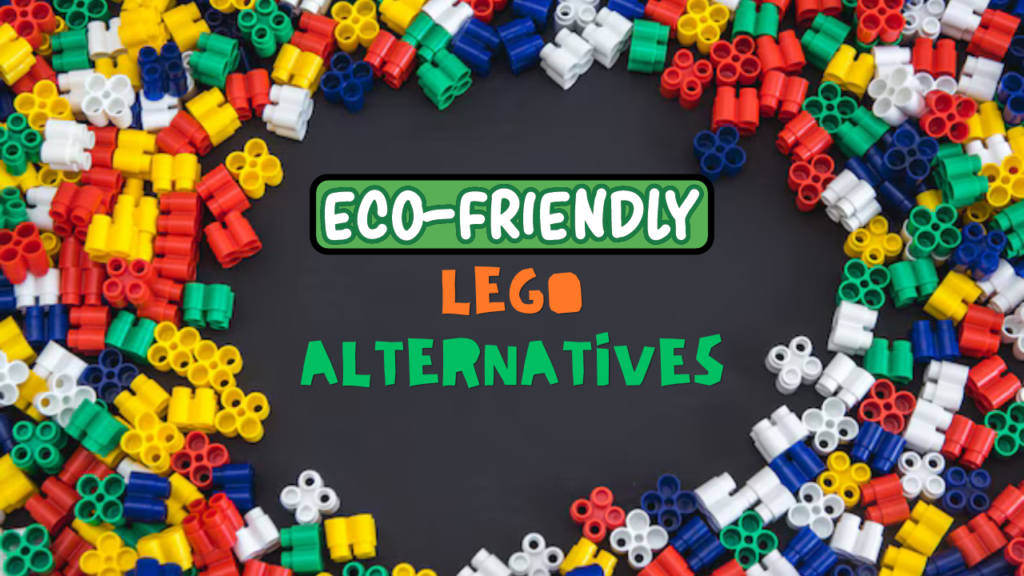
Introduction to Eco-Friendly Building Blocks
As awareness of environmental issues increases, the toy industry is experiencing a shift toward more sustainable products. This movement is driven by concerns over plastic waste and its significant impact on the planet. Eco-friendly building blocks are emerging as a key solution, offering a greener alternative to traditional plastic toys. These blocks are crafted from materials that minimize environmental impact while still providing the imaginative and educational benefits of conventional building toys.
The Rise of Eco-Friendly Building Blocks
The push for eco-friendly building blocks reflects a broader trend toward sustainable living. Unlike traditional plastic toys, which often contribute to long-term waste and pollution, these innovative alternatives use materials designed to be kinder to the environment. Common materials in eco-friendly building blocks include:
- Biodegradable Substances: These materials decompose naturally over time, reducing long-term waste.
- Recycled Plastics: Repurposed from post-consumer waste, recycled plastics help decrease landfill contributions and reduce the energy required for new plastic production.
- Sustainably Sourced Wood: Harvested from responsibly managed forests, this wood supports ecosystem regeneration and biodiversity.
Consumers can support a more sustainable future by choosing eco-friendly building blocks while providing children with safe and engaging toys.
Benefits of Eco-Friendly Building Blocks
Opting for eco-friendly building blocks over traditional plastic options offers several advantages that align with a sustainable lifestyle.
Reduction of Plastic Waste
Traditional LEGO bricks are made from ABS plastic, contributing to the growing plastic pollution problem. In contrast, eco-friendly building blocks are often made from:
- Biodegradable Materials: Derived from renewable resources, these materials break down naturally, reducing waste.
- Recycled Plastics: Reusing existing plastics helps minimize landfill accumulation and cuts down on the need for new plastic production.
Lower Carbon Footprint
Eco-friendly building blocks typically involve greener manufacturing processes, which include:
- Renewable Energy Use: Many companies utilize renewable energy sources in their production.
- Lower Greenhouse Gas Emissions: Production methods for eco-friendly blocks often result in reduced emissions compared to conventional plastics.
Promotion of Sustainable Practices
Choosing sustainable products encourages more companies to adopt eco-friendly methods. Benefits include:
- Support for Sustainable Brands: Purchasing from companies that prioritize environmental stewardship amplifies demand for green products.
- Encouragement for Industry Change: Increased consumer demand drives more brands to embrace sustainable practices.
Durability and Safety
Eco-friendly building blocks do not compromise on quality or safety:
- Durability: Many eco-friendly blocks are just as robust and engaging as traditional options.
- Non-Toxic Materials: Made without harmful chemicals like BPA, phthalates, or lead, these blocks are safer for children.
Popular Eco-Friendly Alternatives to LEGO
Several brands are leading the way in eco-friendly building blocks, each offering unique materials and features to support sustainable play.
BiOBUDDi
BiOBUDDi is a prominent player in the eco-friendly building block market. Key features include:
- Materials: Made from sugarcane remnants, a renewable resource.
- Compatibility: Blocks are compatible with standard LEGO sets, allowing seamless integration.
- Customer Feedback: Known for durability and appealing pastel colors. Parents appreciate its eco-friendly nature and the company’s commitment to sustainability.
PlanToys
PlanToys offers building blocks crafted from sustainably sourced rubberwood. Highlights include:
- Materials: Uses eco-friendly practices, including chemical-free kiln-drying and non-toxic dyes.
- Educational Benefits: Natural textures and colors stimulate sensory development and creativity.
- Reputation: Praised for high-quality craftsmanship and enduring appeal. PlanToys maintains a solid reputation among eco-conscious consumers.
Tegu
Tegu provides a unique approach with magnetic wooden blocks made from sustainably sourced hardwoods. Features include:
- Materials: Coated with water-based finishes, ensuring safety and environmental responsibility.
- Innovative Design: Magnetic feature enhances play possibilities.
- Consumer Reception: Known for longevity and versatility. Tegu’s commitment to reforestation further supports its standing in the market.
How to Choose the Right Eco-Friendly Building Blocks
Selecting eco-friendly building blocks involves evaluating various factors to ensure they meet individual needs and preferences. Consider the following aspects:
Age Appropriateness
- For Younger Children: Choose blocks with larger pieces to prevent choking hazards.
- For Older Children: Opt for sets with more intricate components that encourage complex constructions and creativity.
Safety of Materials
- Non-Toxic: Ensure blocks are free from harmful chemicals such as BPA, phthalates, and lead.
- Certifications: Look for certifications from recognized organizations, including:
- Forest Stewardship Council (FSC): Indicates responsibly sourced wood.
- GreenGuard: Ensures low chemical emissions.
- Global Organic Textile Standard (GOTS): For textile-based blocks.
- Cradle to Cradle: For overall product sustainability.
Ease of Use
- Smooth Fit: Blocks should fit together easily and offer stability.
- Compatibility: Consider sets that work seamlessly with existing collections to expand creative possibilities.
Manufacturer’s Sustainability Claims
- Research the Brand: Investigate the company’s environmental policies, labor practices, and community contributions.
- Ethical Practices: Support brands that engage in fair trade and use renewable energy or recycled materials.
Conclusion
Eco-friendly building blocks represent a significant advancement in sustainable play, offering a greener alternative to traditional plastic toys. With benefits including reduced plastic waste, lower carbon footprints, and safety for children, these blocks align with a more responsible and eco-conscious lifestyle.
Brands like BiOBUDDi, PlanToys, and Tegu are leading the way with innovative materials and practices, contributing to a shift toward sustainable play options. By choosing eco-friendly building blocks, consumers can enjoy creative play while supporting a healthier planet for future generations.